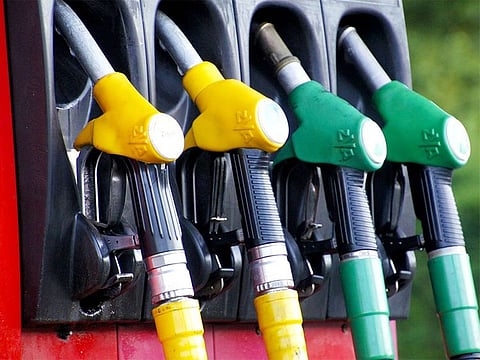Saudi Arabia: Sharurah hit by 91 petrol crisis
Authorities shut filling stations, take samples of petrol for testing after breakdowns

Abu Dhabi: The continuing car breakdown crisis caused by gasoline 91 in Sharurah, a town in Najran Province, southern Saudi Arabia, has led to severe crowding at gas stations and prompted police to organise the filling operations, local media reported.
Several tanks have arrived from Abha carrying petrol 95 to cover the shortage, after 91 caused significant breakdowns and increased engine oil in cars, according to Al Watan newspaper.
The Ministry of Commerce intervened and suspended all the stations in the governorate, and took samples and sent them to the Laboratory of the Standards and Metrology Authority in Riyadh.
One of the victims, Mafrej Al Saiari, said that he noticed an increase in engine oil after filling with 91 gasoline, then submitted a report to the Ministry of Commerce, which requested a report from the car agent.
Khaled Al Karbi, another motorist whose car was reportedly impacted by the 91 petrol, stated that he converted to 95 gasoline despite its high price, as he could not find a solution other than that after his car allegedly broke down.
What is the difference between 91 and 95 petrol?
When the engine is running, the fuel-air mixture is ignited by a spark. This occurs shortly before the piston reaches top dead centre; something like 15 degrees or so depending upon engine speed. Under most circumstances there is no problem with the octane number of the fuel, and the engine will operate comfortably on either a 91 or 95 octane fuel.
But this is because, due to throttling of the intake charge, there is lower compression pressure in the cylinder. This is why it is not creating the most power it is capable of creating. But at full power, when the throttling is minimised, the compression pressure is higher, and the engine temperature is higher, the fuel-air mixture is hotter and there is more of it being compressed and then ignited, the mixture starts to burn, ignited by the spark, and in fractions of a second, the heat and pressure of the yet un-burned fuel-air mixture spontaneously ignites, detonates, and what is called “knock” occurs.
This knock can damage an engine and the most sophisticated engines currently in use can detect knock and change the spark timing or do other things which will prevent the detonation.
The end answer is that the higher octane rating of a fuel, the less likely for detonation to occur. So if an engine has a low compression ratio, the lower the octane fuel it can operate with. But this is also an engine that will produce lower power than the same engine with a higher compression ratio.
Your car can idle quite well on a 91 octane fuel, and even operate in most cases with no problem on the same fuel. But if you try to accelerate to full power it may detonate and could damage the engine over a period of time.
If the manufacturer recommends a 95 octane fuel, you will be more likely to get full power out of the engine with no damage using that fuel. But detonation is a combination of compression pressure, throttle opening, and operating temperature. For a turbo-charged engine octane is more important as the turbocharger raises the compression pressure in order to increase the available power that the engine can produce.
Sign up for the Daily Briefing
Get the latest news and updates straight to your inbox







